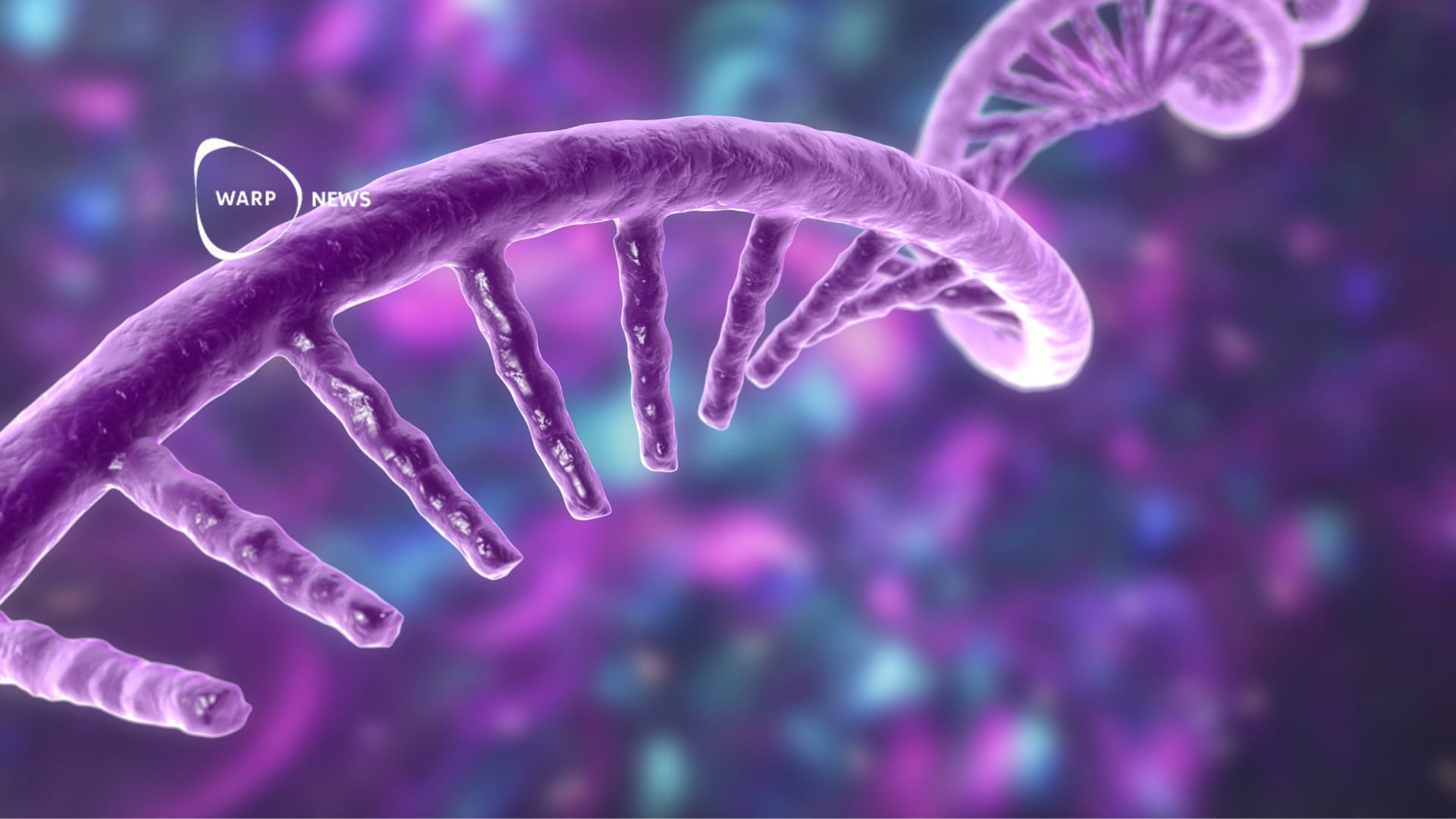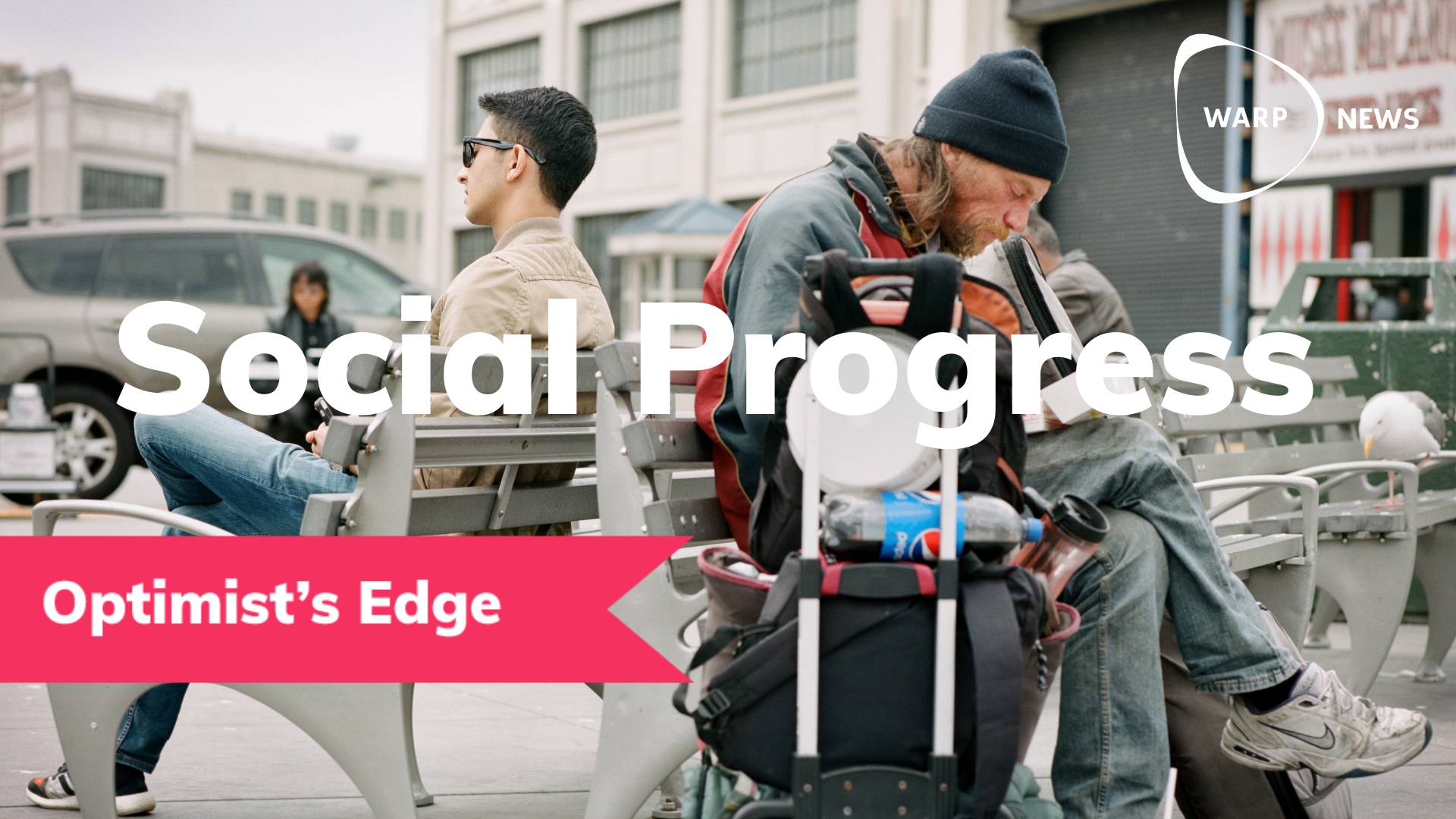
💡 Optimist's Edge: Is your neighbor thriving? Good for you!
Is social progress stalling? Many of us believe so. Yet, quality of life has clearly improved all over the world. This is great news for everyone.
Share this story!
Summary
📉 What people think
One out of three people believes that social progress, in general, is diminishing. And more than 40 percent have no clue at all. This leaves only one in four optimistic about where things are heading.
📈 Here are the facts
The quality of life on the planet has clearly improved, regardless of countries' economic situations.
💡 Optimist's Edge
If the average and overall welfare improve and wealth is more evenly distributed, a critical reason for criminality will be dealt with. Social progress will provide all with more equal chances to reach their goals.
👇 How to get the Optimist's Edge
Support organizations and individuals are working for a better future - for all of us.
📉 What people think
Warp News performed a survey to ask how people thought social progress was evolving. Almost a third of the respondents were under the impression that the social progress was decreasing. In other words, one out of three foresee a rather dark future. At the same time, 41 percent answered "Don't know".
This leaves us with 25 percent who answered that social progress is increasing. So, where is the truth in this?
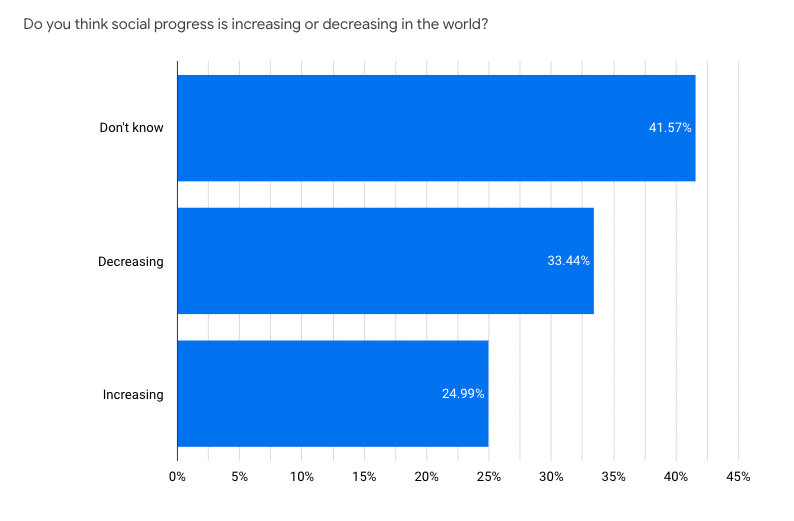
📈 Here are the facts
First, we need to explain what social progress actually means. The idea is to turn away from the usual method that ranks countries according to their Gross Domestic Product, better known as GDP, and replace it with another indicator: the ability of a government to satisfy the basic social and environmental needs of its population. This is the Social Progress Index, or SPI.
The calculation is based on 53 social and environmental outcome indicators and measures a society's good social health and living conditions. This tool was developed around 2010, notably under the guidance of Harvard and MIT scholars.
Using the SPI's foundational works, the European Commission chose in 2016 to use the European Social Progress Index to evaluate the well-being of its regions. Both are in line and offer practical ways to achieve the 17 sustainable development goals established by the United Nations.
And the great news is that, as detailed in SPI's report for 2021, the overall score has increased by 4,63 points over the last decade. This means that the quality of life on the planet has improved, regardless of the pure economic situation of countries.
Since 2011, 147 countries (86 percent of those measured) have improved by one point or more. Yet these gains in social progress are also unevenly distributed among countries.
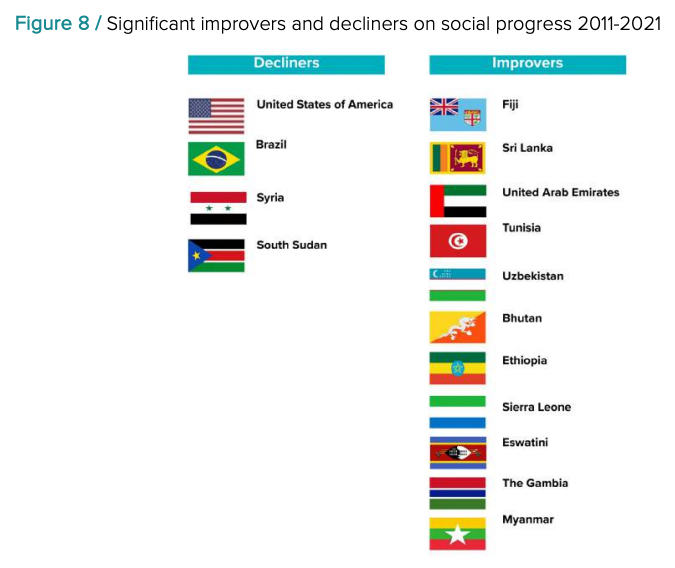
💡 The Optimist's Edge
How does that impact you and your future, you might ask? To put it simply, we need to remember poverty has been linked and shown as a critical cause of criminality.
There are different ways to understand this. Several theories in criminology have attempted to provide answers to one of the most complex phenomenons. A complete analysis is neither the purpose of this article nor entirely possible; as for today, crime remains a mystery. However, we will present two theories to help all understand why social progress improvement carries optimism.
- Emerging in the 1940s, the Strain Theory draws on two main ideas: 1) society gives us all goals to achieve, which materialize in status, wealth, or belongings in today's world; 2) not all citizens have the same opportunities, which create a tension between the objectives and the means to achieve them. Robert Merton explains that individuals show five different paths to fill this gap. Four are within the realm of the law, while the fifth, the Rebellion, takes the shape of unlawful behaviors.
- The Relative Deprivation Theory was developed in the 1960s under the influence of Walter Runciman. It argues that one can feel deprived, disadvantaged, and envious of (a series of) desirable things that another person or group does have in their possession.
How does that have anything to do with social progress? How does that affect you?
The answer is plain and simple. If social progress improves and wealth is more evenly shared, a critical reason for criminality will be dealt with. There will be more opportunities to achieve and less feeling deprived compared to the achievements of others. In an article published in 2014, scholars from the World Bank have shown how inequalities in terms of income have affected the crime rate in Mexico, especially surrounding Mexican Drug War. The strength of this study was to establish a causal effect between inequality, and criminal behaviors.
Social progress will provide all with more equal chances to reach their goals. And this can happen through simple things like literacy. The NGO Food for the Hungry summed it highlighting for paradigms: 1) more literacy can improve health; 2) literacy creates more job and financial opportunities; 3) literacy can ensure more gender equality; 4) literacy enhances self-esteem and performance in social life.
And this has been said since as early as 2002! Famous auditing company Deloitte has published key features and estimates that overall SPI needs to increase by at least 10 points to reach UN's goals and ensure basic human needs to all.
👇 How to get the Optimist's Edge
Usually, this section gives you, hints of solutions to participate in a change. We usually advise you on business to invest in, energy production means to install, or even vehicles to buy. But here, on such an enormous task, what could you do?
Perhaps it's most fitting to quote Michael Porter, who took part in establishing the SPI, in his address at the World Economic Forum in 2015:
"In my own experience, I have seen how Rwanda made investing in social progress – including gender equity, a 61% reduction in child mortality in a single decade, and 95% primary school enrollment – integral to its economic development strategy. Rwanda’s positive economic performance would not have been possible without improvement in these and other dimensions of social progress."
In other words, you can support the work of NGOs or other organizations that play an essential role in improving the social reality.
Whether their target is the construction of schools, the fight for gender or ethnic equality, or ensuring access to food and water where they are less accessible, they will be very happy to receive a donation, even small.
And you can, of course, be the change yourself.
Here are examples of actors that strive to improve social progress:
Start by donating to the Social Progress Index.
And have a look at these initiatives:
Reach for Change
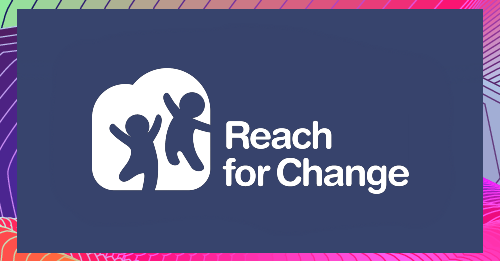
1% for the planet

Donate to effective charities:
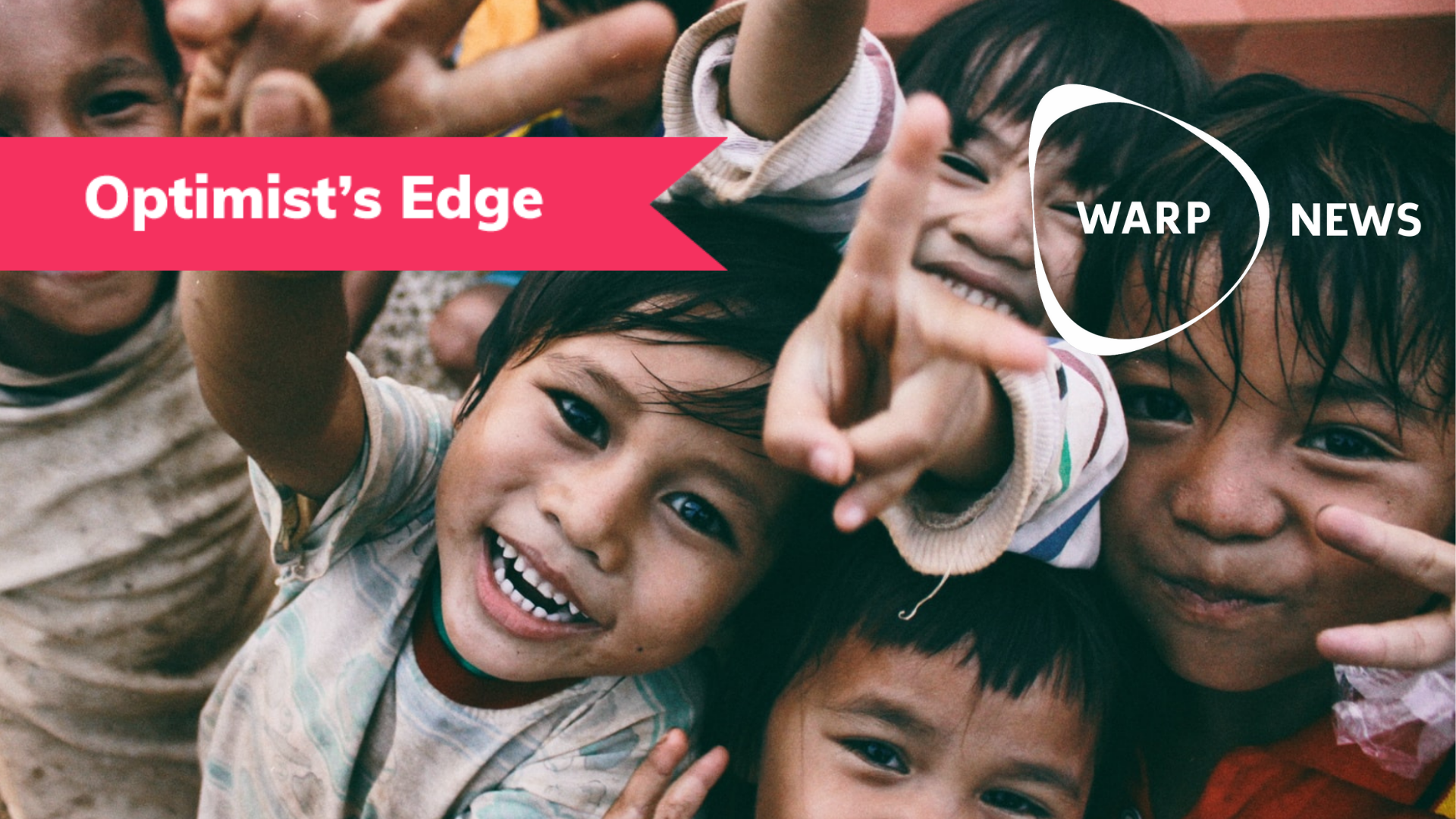
On topics like justice and democracy, Amnesty International is very active. Not to forget MSF - Médecins sans Frontière, and many more.
Whatever you choose, be sure it will be beneficial for you one way or another.
❓ What else can you do?
Feel free to share more ideas with other Premium Supporters in our Facebook group.
By becoming a premium supporter, you help in the creation and sharing of fact-based optimistic news all over the world.





